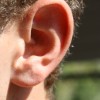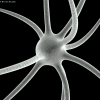Did you know dolphins can stay constantly awake for weeks?
Young parents and workaholics are very familiar with the effects of sleep deprivation, and almost everyone is agreed – it’s not the most pleasant place to be! Anyone who has ever tried to be, or had to be, awake continuously for several days and nights will know how a stretch of busy time without a nap reduces us to clumsy, incoherent creatures in a daze. But did you know that dolphins have the incredible ability to stay constantly awake – and alert – for more than two weeks? So how do they do that? This is the question Brian Branstetter, a marine biologist at the National Marine Mammal Foundation in San Diego, has been asking. As he found out, they simply sleep with only half of their brains!Dolphins can stay awake and alert for weeks. This experiment showed they continuously echolocate and accurately report the presence of targets for at least 15 days without interruption.
In contrast to land mammals, dolphins developed the ability to sleep with only one part of their brains at a time. While half of their brains rests – and dreams – the other half remains awake and alert. This finding explains how dolphins can keep a constant lookout for their pod mates and predators, like sharks. Dolphins regularly alternate the active side of the brain. If they stopped whole brain activity and slept like humans do, they would probably become easy prey or even drown.
In a clever experiment, researchers tested how “mindful” dolphins are with just half their brain. Because dolphins use echolocation to map the world, the investigators set up a portable floating pen outfitted with eight modules, each consisting of an underwater sound projector and microphone. During echolocation, an animal produces a sound and listens to returning echoes to gain information about its environment. So when a dolphin scanned any of the eight modules using echolocation, they were able to respond to the signal with sound-mimicking echoes of signals from remote surfaces. Essentially, these modules could behave as “phantom targets.”
Trained to respond to these signals for a year, in the experiment the dolphins could eventually successfully use echolocation with extremely high accuracy and no sign of deteriorating performance for up to 15 days straight! The researchers stopped the experiments at that point. but they suggested dolphins could continue much longer staying alert and doing tasks, perhaps indefinitely. Isn’t it amazing that the dolphins showed no sign of losing their sharpness as the days wore on?
“These majestic beasts are true unwavering sentinels of the sea,” said Branstetter, according to Live Science.
Future research will include monitoring the dolphin’s brains for electrical activity via electroencephalogram, or EEG.
“Research with freely moving humans who wear portable EEG equipment has been conducted; training a dolphin to wear a similar portable EEG backpack that is capable of withstanding and functioning in an ocean environment presents much greater challenges,” Branstetter said. “However, these hurdles are not insurmountable. Also, we are interested in investigating if dolphins can perform more complex cognitive tasks without rest, like problem solving or understanding an artificial language,” Branstetter added.
If the ability to keep half the brain turned on while the other is getting a good rest is an evolutionary adaptation to protect against predators, it makes me wonder why humans didn’t also developing this ability? On the other hand, nothing is more fun than getting a good night’s sleep and bending the laws of gravity in your dreams! So for us humans it is: Keep calm and sleep on!
The study was published in PLoS One.
| Print article | This entry was posted by Christine Marizzi on June 25, 2014 at 7:57 am, and is filed under G2C Online. Follow any responses to this post through RSS 2.0. You can leave a response or trackback from your own site. |









